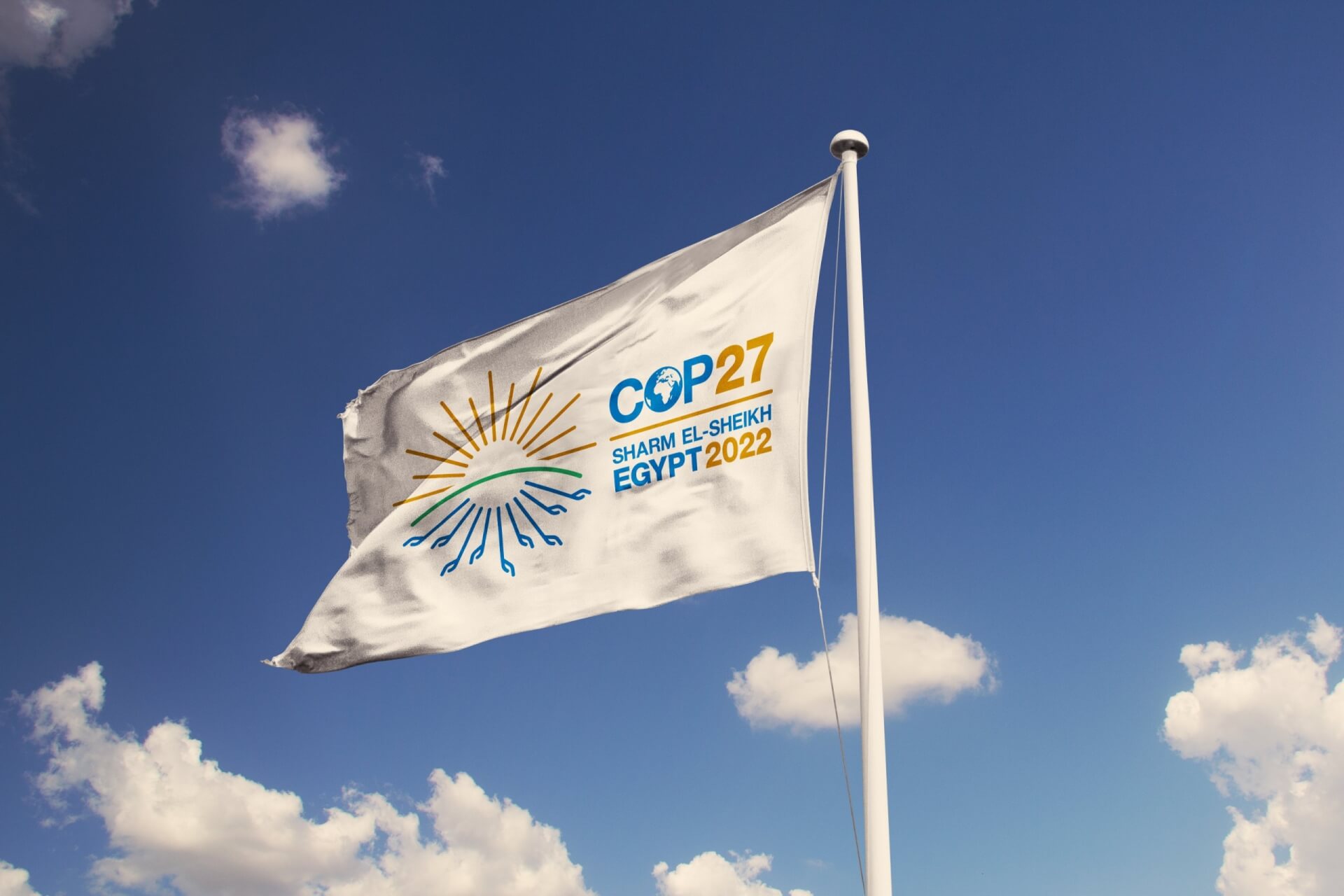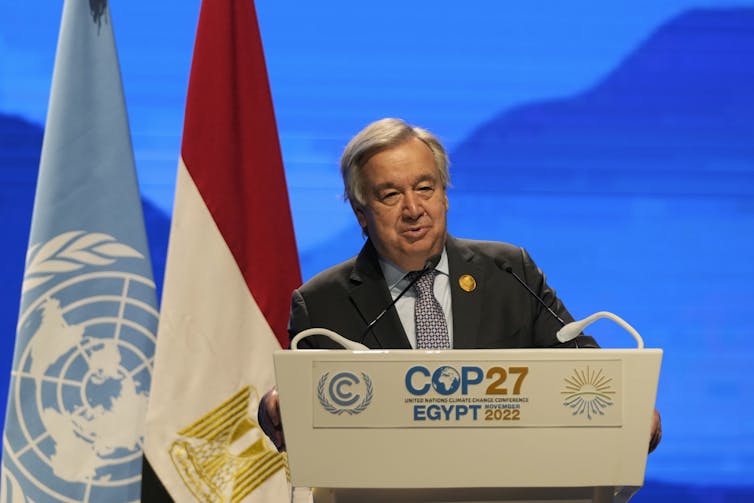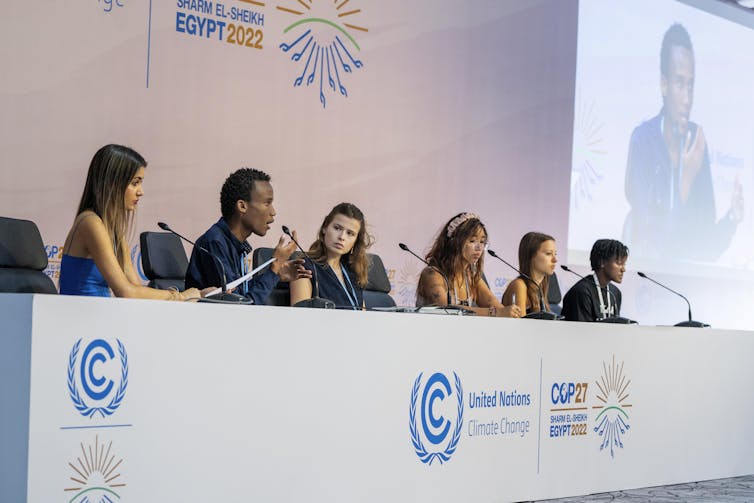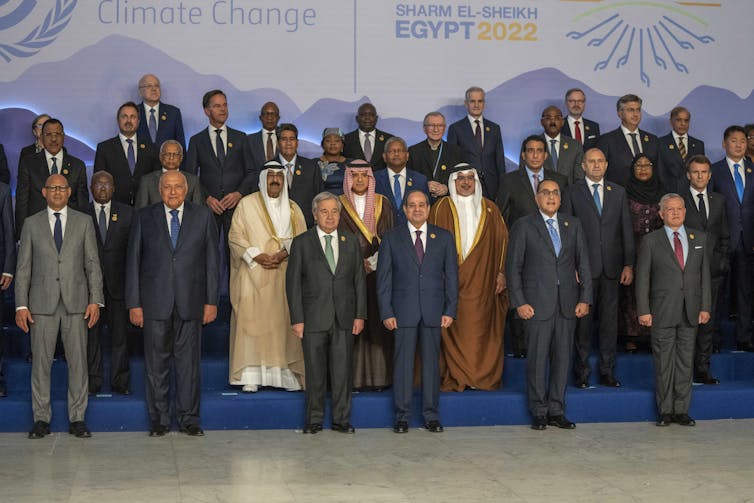
This article is republished from The Conversation under a Creative Commons license.
In 2015, the United Nations identified 17 Sustainable Development Goals (SDGs) to be achieved by 2030. Since then, the SDGs have been woven into research programs, national and international policy, and election campaigns globally. But the clock is ticking — with just eight years to 2030, it is worth asking how we will get there.
Real progress for all, especially those in the Global South, demands a renewed commitment to and action on international co-operation and scientific collaboration at a scale not previously seen.
Meeting the UN SDGs won’t be an easy task because there are barriers to the kind of collaboration it requires.
As we’ve seen during the COVID-19 pandemic, international scientific collaboration is at the heart of innovative science that has real-world impact.
Yet barriers to scientific collaboration include restrictions on data and material transfer, lack of domestic institutional capacities or excessive visa processing times. There is also a culture in scientific research communities that tends to reward individuals over collectives.
And new barriers to collaboration are being raised that restrict the production of knowledge and jeopardize our ability to meet the 2030 goals. These include a retreat from multilateralism and heightened concerns over national security.
But there is reason for hope. The pandemic is a collaboration success story. It saw the development of innovative vaccines and antivirals in record time and at scale made possible by technology platforms allowing rapid communication, data sharing and decades of discovery-driven research.
Our ability to harness this knowledge for the greater good in a time of crisis showed us what’s possible when the scientific community is motivated and enabled to collaborate.

Collaboration is essential to meet the SDGs. Sustainability cannot be achieved by one country. This should be obvious from the pandemic: viruses do not respect political boundaries, after all, especially in a globally connected world.
Global benefits must be traded off against domestic needs, such as when forests serving as carbon sinks (SDG 13) are converted to agriculture to improve food security and nutrition (SDG 2).
Global challenges demand global solutions, and our current system for knowledge generation, sharing and innovation globally is not up to the task.
The current system of support for international collaboration in science remains alarmingly fragile. Many initiatives and platforms, like databases for genomic data that allow us to track emerging coronavirus variants, are dependent on just a few countries or philanthropic organizations for support.
Growing geo-political tensions also threaten collaboration when, under the guise of national self-interest, a country can withdraw support for research at any time.
We need a more resilient and inclusive system for global collaboration that is committed to multilateralism for science. We also need new frameworks and incentives to support collective action and boundary-spanning research to address existing inequities.

We are calling on the world’s nations who met at the COP27 UN Climate Change Conference over the past two weeks to make that commitment. We need to start by catalyzing international scientific collaboration through desperately needed investment.
If all G7 nations and the EU pledged to commit one per cent of government expenditure on research and development to international scientific collaboration, this would launch a collaboration fund of over US$14 billion. This could be leveraged to raise comparable investments from the private sector and civil society.
This fund could: ensure the longevity and sustainability of collaborative platforms; support open science for a globally accessible collective knowledge resource; provide support for SDG-focused international collaborations to spur innovation by incorporating non traditional methods, insights and voices, especially those that mitigate trade-offs among targets; reinvigorate an effective cross-UN science advisory board to support decision-making on global issues.
We are at a tipping point, and what happens next sets our course for 2030. The power of collective action around knowledge creation, data sharing and innovation is needed more than ever. Individual governments cannot achieve the SDGs on their own — blended contributions from the private sector, civil society and research agencies are needed.

The goal should be to catalyze progress towards the SDGs by lowering the barriers to and improving the resiliency of international scientific collaboration.
The place to start is with a strong commitment from governments, donors and multilateral banks and business to create a global multilateral fund to support knowledge generation for the SDGs. Committing one per cent of government expenditure on research and development with one per cent of research budgets from private funders creates an opportunity to get us on track.
It would create opportunities to explore more widely and foster greater creativity. Only then can we achieve a sustainable and diverse ecosystem of science that will catalyze our progress in achieving the UN SDGs.
We have eight years to go. If we act now there is still time to make the 2030 goals a reality.
Rees Kassen, Professor of Evolutionary Biology, L’Université d’Ottawa/University of Ottawa et Ruth Morgan, Vice Dean Engineering (Interdisciplinarity Entrepreneurship), Professor of Crime and Forensic Science, UCL
This article is republished from The Conversation under a Creative Commons license. Read the original article.